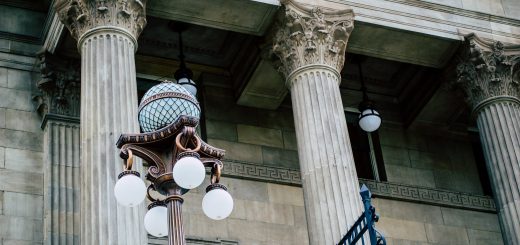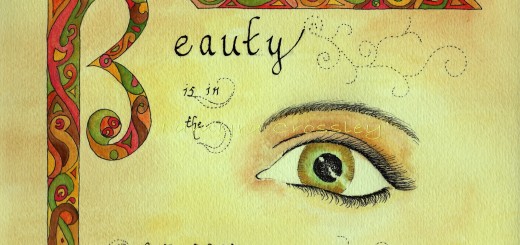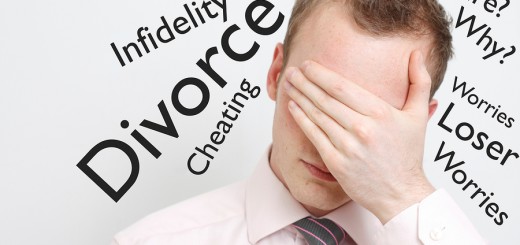Natural response #3: where is God in all this?
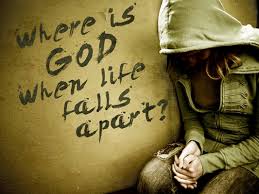 When we hear bad news, it’s hard not to think ‘Where is God in all this?’
When we hear bad news, it’s hard not to think ‘Where is God in all this?’
When someone is not responding to chemotherapy, it’s easy to ask ‘Is there even a God?’
When an active seemingly healthy man dies leaving a wife and kids, it’s natural to question ‘What kind of God would allow this kind of thing to happen?’
We don’t understand. We have no answers. People are asking us to explain and we don’t know what to say.
Natural disasters. War. Abuse. Systematic violence. Illness. Tragedy.
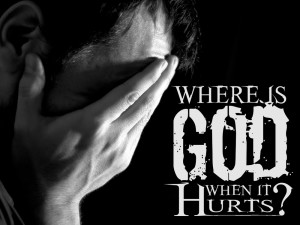 There is so much suffering in this world – God’s world – and yet He seems to do nothing about it.
There is so much suffering in this world – God’s world – and yet He seems to do nothing about it.
Does He not know? This all knowing God…..
Does He not care? This all-loving God…..
Is He not able to do anything? This all-powerful God…..
It makes no sense to us, does it?
We are not alone. The Archbishop of Canterbury finds himself asking the very same questions. He has no answers either.
Paris attacks caused archbishop to ‘doubt’ presence of God
The Most Reverend Justin Welby told BBC Songs Of Praise he had prayed, asking “where are you…” after the attacks.
The archbishop said: “Saturday morning, I was out and as I was walking, I was praying and saying: ‘God, why – why is this happening? Where are you in all this?'”
Of course, people don’t like that. He’s the archbishop. He should have it all sorted. The press jump on it – the most senior ‘vicar’ in the land with serious doubts about God.
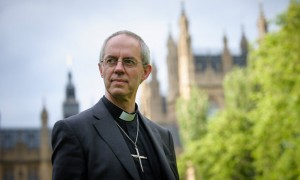 Maybe Justin Welby was simply too honest. Maybe he was being too human.
Maybe Justin Welby was simply too honest. Maybe he was being too human.
This isn’t the first time he’s admitted to doubt. Back in September 2014, he came clean about it too. But there’s a great article by Andrew Brown in the Guardian about it – If Justin Welby has doubts about God it’s no bad thing – which is a helpful read.
Justin Welby confessed on a recent visit to Bristol that sometimes he doubts that God exists, or at least that he acts in the world. This may have been off-message for an Archbishop of Canterbury, but it was also a reassuring sign of humanity. Anyone who could look at the world around us and think “Oh, yes, this is obviously the work of an omnipotent and benevolent God who has a special care for babies” is insane, unobservant, or has led a very fortunate life.
Welby is none of those things. In fact he has seen more massacre sites than most journalists ever will; his father was an alcoholic; he has had a child die – experiences to make you doubt the benevolence of God.
He’s not alone in this, and it isn’t an intellectual thing. The problem of evil is insoluble for Christians.
A reassuring sign of humanity. It’s completely natural. It’s part of being human.
In his blog, Justin Welby writes a response to this press coverage – Why arguing with God is not the same as not believing in him. It’s all good and helpful so it’s all here –
Every now and then I spend a day kicking myself for getting things wrong. Yesterday was one of those days.
Last week I willingly agreed to do an interview for Songs of Praise in connection with the appalling attacks in Paris. During it, I was asked whether events like Paris ever caused me to doubt and question. Foolishly, I said exactly what I thought, in a fairly lengthy discussion which particularly referred to Psalm 44.
The essence of my answer was that everyone has moments when they question things, and one sees that in the Psalms. The psalmist in Psalm 44 asks God if he is asleep, and challenges him in the most direct terms about his failure to deliver Israel. It is a psalm of protest.
When there are tragedies like Paris, when friends suffer, when evil seems to cover the face of the Earth, then we should be like the psalmist.
But that is not the same as a settled belief that God does not exist, or even any serious questioning about his reality. It’s a moment of protest and arguing. It’s very much part of my normal prayer life, together with praise and wonder, with delight and awe, with petition and lament, with celebration and rejoicing.
So, for the record, I do believe in God, and that Jesus Christ is God himself, and I can say every word of the Creed without ever crossing my fingers once.
And why was I kicking myself? Because, even as I said it, I realised that it would be too tempting for an editor or headline writer to take things out of context, a long context of a whole discussion, and to make a good headline. I really need to remember that.
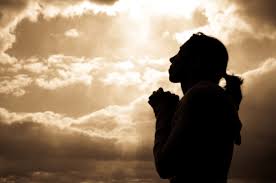 A moment of protest and arguing.
A moment of protest and arguing.
We all have them. Of course we do.
We don’t like what we see. We want things to be different. We want suffering to stop. For there to be an end to war. We want God to intervene. We need to understand the reasons and be offered a solution.
Unfortunately, that’s not how it works. ‘God works in mysterious ways.’ A cliche but it’s true. We will never fully understand.
Just like the people of God in our journey through the Bible have not been able to fully understand.
Just like Nehemiah.
But it boils down in the end to trust. Trust and obey for there’s no other way.
Trust that God knows what He is doing. Trust that He knows best. Trust that He is in control of the bigger picture. Trust that all is going to end well. Trust that love wins.
This is faith.
We should not use the good things in life to prove that God exists, just as we should not use the bad things in life to prove that God exists.
God exists. I do not doubt that. I do not question that.
But I guess I will continue to wrestle with the difficult questions, as we all will.
